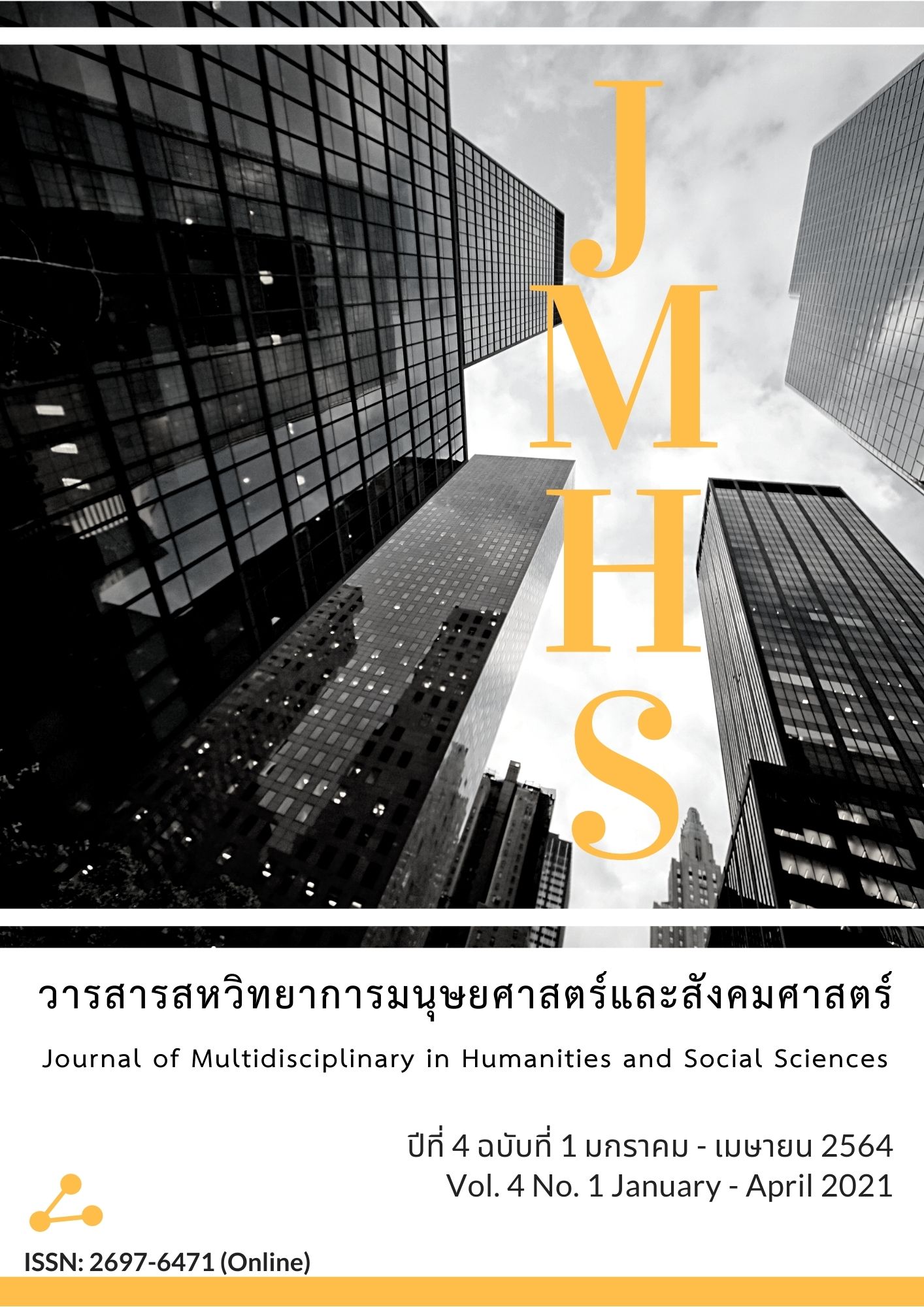Leadership Role of School Administrator and Team Performance of Teacher in School under Rathaburi Primary Educational Services Area Office 1
Main Article Content
Abstract
The purposes of this research were to determine 1) the leadership roles 2) team performance of teacher 3) the correlation between leadership roles and team performance of teacher in school. The sample were 104 schools under Ratchaburi Primary Educational Service Area Office 1. The 2 respondents in each school were; a director or deputy school director and a teacher 208 respondents in total. The research instrument was a questionnaire about leadership roles based on Farren and Kaye’s concept, and team performance of teacher in school based on Woodcock’s concept. The statistical used for analyze the data were frequency, percentage, arithmetic mean, standard deviation and, Pearson’s product moment correlation coefficient. The findings revealed as follows:
1. Leadership role of school administrator under Ratchaburi Primary Educational Service Area Office 1. Generally, the results were demonstrated at the "highest level". When concerned in each aspect found that 3 aspects were shown as "the highest level", whereas 2 aspects were in a "high level" by arithmetic mean, from high to low which follow facilitator, predator, supporter, and consultants, respectively.
2. Team performance of teacher in school. Generally, the results were demonstrated at a “high level”. It shown at the "highest level" in 2 aspects whereas in a "high level" in 9 aspects by highest arithmetic mean from high to low including skills of good communication, performance of leader, definite objectives and acceptable goals, operational review as regular, self-improvement as always, relatives between cooperation and conflict, balance in role, mutual support and trust, distinct operations and the right decision, revelations and encounters respectively.
3. Leadership role correlated with team performance of teacher. In general, results were shown at a "high level" with statistically significant 0.01.
Article Details
Views and opinions appearing in the Journal it is the responsibility of the author of the article, and does not constitute the view and responsibility of the editorial team.
References
ชาติชาย ศรีจันทร์ดี. (2557). บทบาทของผู้บริหารสถานศึกษากับการปฏิบัติตามมาตรฐานวิชาชีพครู พ.ศ. 2556 (ปริญญาศึกษาศาสตร์มหาบัณฑิต สาขาวิชาการบริหารการศึกษา). คณะศึกษาศาสตร์ มหาวิทยาลัยศิลปากร.
บุญเพชร พึ่งย้อย. (2556). คุณลักษณะผู้นำกับการปฏิบัติงานเป็นทีมของบุคลากรโรงเรียนสาธิตมหาวิทยาลัยศิลปากร (ปริญญาศึกษาศาสตร์มหาบัณฑิต สาขาวิชาการบริหารการศึกษา). คณะศึกษาศาสตร์ มหาวิทยาลัยศิลปากร.
ปัทมา สายสอาด. (2551). ทักษะการติดต่อสื่อสารของผู้บริหารที่ส่งผลต่อประสิทธิภาพการปฏิบัติงานเป็นทีมของครูในโรงเรียนสังกัดสำนักงานเขตพื้นที่การศึกษากาญจนบุรี เขต 2 (ปริญญาศึกษาศาสตร์มหาบัณฑิต สาขาวิชาการบริหารการศึกษา). คณะศึกษาศาสตร์ มหาวิทยาลัยศิลปากร.
สุกัญญา แช่มช้อย. (2560). การบริหารสถานศึกษาในยุคดิจิตอล. พิษณุโลก: พิษณุโลกดอทคอม.
สุวิทย์ เมษินนทรี. (2560). ปาฐกถาศาสตราจารย์ ดร.วิจิตร ศรีสอ้าน ครั้งที่ 8 เรื่อง การบริหารการศึกษาเพื่อร่วมสร้างประเทศไทย 4.0. กรุงเทพฯ: คณะครุศาสตร์ จุฬาลงกรณ์มหาวิทยาลัย.
สำนักงานเขตพื้นที่การศึกษาประถมศึกษาราชบุรี เขต 1. (2558). เอกสารผลสรุปผลการประเมินคุณภาพภายนอก. กลุ่มนิเทศติดตามฯ, สำนักงานเขตพื้นที่การศึกษาประถมศึกษาราชบุรี เขต 1.
สำนักงานเขตพื้นที่การศึกษาประถมศึกษาราชบุรี เขต 1. (2560). รายงานผลการดำเนินงานตามแผนปฏิบัติการและผลการดำเนินงานตามยุทธศาสตร์ของ สพฐ. ประจำปีงบประมาณ. กลุ่มนโยบายและแผน, สำนักงานเขตพื้นที่การศึกษาประถมศึกษาราชบุรี เขต 1.
อภิญญา ศรีเวียง. (2559). บทบาทของผู้บริหารกับการบริหารจัดการระบบคุณภาพโรงเรียนมาตรฐานสากล (ปริญญาศึกษาศาสตร์มหาบัณฑิต สาขาวิชาการบริหารการศึกษา). คณะศึกษาศาสตร์ มหาวิทยาลัยศิลปากร.
Emmerik, H. V., & Brennikmeijer, V. (2009). Deep – Level Similarity and Group Social Capital: Associations with Team Functioning. Retrieved from http://sgr.sagepub.com/content/40/6/650.abstract
Farren, C., & Kaye, B. L. (1996). New Skills for New Leadership Roles, in The Leader of the future: new visions, strategies and practices for the next era. New York: The Drucker Foundation.
Katzenbach, R. J., & Smith, K. D. (1993). The Wisdom of Teams. Cambridge: McGraw–Hill.
Lunenburg, F. C., & Ornstein, A. C. (2012). Educational Administration: Concepts and practices. (6th ed.). Bel Mont, CA: Wadsworth.
Woodcock, M., & Francis, D. (1994). The eleven Building Blocks of Effective Teamwork. Great Britain: The University Press.


